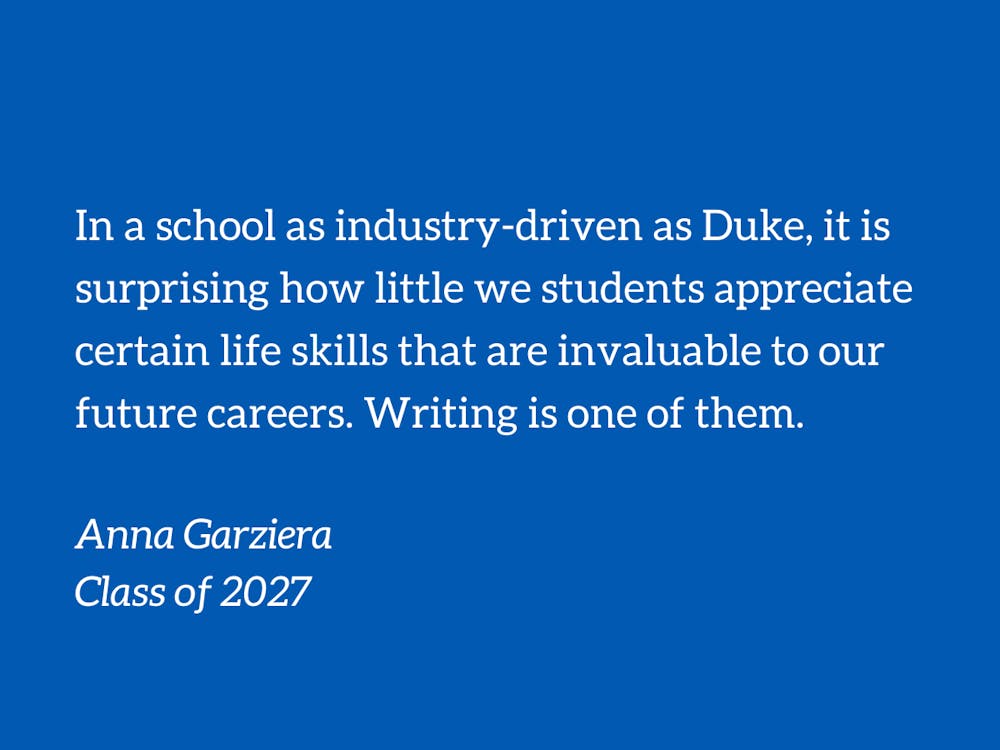"So long as men can breathe or eyes can see,
So long lives this, and this gives life to thee."
— Shakespeare’s Sonnet 18: Shall I compare thee to a summer’s day?
Human capital is losing its value as fast as our dollars these days. In an increasingly automated world, we are less and less independent. 500 years ago, we still knew how to knit stockings. 200 years ago, we still knew how to gather wheat and milk cows. 20 years ago, we still knew how to use indexes. Two years ago, we still knew how to write.
Like it or not, the use of AI is spreading like wildfire on college campuses. More than ever, students are using AI to complete assignments, or at least to give themselves an advantage. This practice is on the rise among all disciplines. However, AI use is most prevalent in subjects that require students to write.
There are two reasons for this. Firstly, it is easier to ask ChatGPT to write an essay than to compute integrals. Often, by the time you’ve worked out how to type “rho” into the text box, you may as well just have computed the integral yourself. Some don’t trust ChatGPT to compute math problems correctly altogether. Secondly, writing is difficult to begin. Staring at a blank page is terrifying. ChatGPT offers a promising starting point.
Professors are adapting in their own ways. Some have started using AI-detecting technology to address cheating with AI. Others take the opposite approach, and even encourage their students to use AI in their assignments. Debates on the role of AI in the future of education are rampant. Here at Duke, there is an entire masters program dedicated to AI and machine learning. Other schools have banned AI completely.
No matter which side of the debate you land on, two things remain undeniable. Firstly, AI has both benefits and consequences. Acknowledging this is important so that we may both celebrate its strengths and correct its shortcomings. Secondly, even in an AI-forward world, learning how to write is still important.
A friend recently asked me whether I thought that some of my colleagues at The Chronicle used AI to write their articles. I was shocked, not only because I had never really tried to use AI (I tend to hold a grudge against technology of all kinds), but also because I couldn't fathom the idea of someone cheating on something they're volunteering for. The benefit we reap from writing is the writing itself.
This got me thinking — why do we write? We're definitely not getting paid to do it. Most of us writers at The Chronicle would probably land somewhere between “because we enjoy it” and “because it might look good on our resume.” Yet, with the same amount of time we spend writing our articles, we could arguably indulge in more enjoyable activities or do something more valuable for our resumés. There’s one more reason that is more difficult to pinpoint. We feel that our writing makes us better people.
Whether witnessing our writing develop with every published article or feeling natural inspirations, we can feel ourselves improving.
In a way, this is true for all disciplines. Why does a tennis player continue to show up for practice? Why does a chef keep refining his recipe when it is already so tasty? Sure, there are external motivators, such as money and praise. But at the same time, it’s undeniable: Improvement is so gratifying.
Then, becoming better writers should be a common goal for us college students. This skill is valuable in a multitude of ways.
For centuries, writing has been the primary way of preserving information in the western world. With scripture, we are able to pass it down to future generations in a way that is accurate and pristine. Consider the fact that professors gain their credibility through the papers they published. Consider the fact that there are hundreds of disciplines — English Literature, History, Biblical Studies, Law — that dedicate themselves to studying others’ writing. As aspiring academics, we need good writing in our toolkits.
Furthermore, to write well is to persuade. I first learned this in my AP English Language class, when we were asked to analyze Martin Luther King Jr.’s famous “I Have a Dream” speech. While the speech was effective because of King’s passionate delivery, his success nevertheless started with the pen to paper.
In a school as industry-driven as Duke, it is surprising how little we students appreciate certain life skills that are invaluable to our future careers. Writing is one of them. From crafting cover letters for job applications to delivering clear and concise memos to establishing smooth communication with clients, good writing is key to excelling in most professional industries.
However, good written communication is not only key to our future careers, but we see its importance everywhere in our lives. A well-written email can land you an internship. A well-written Reddit post can evoke hundreds of replies. A well-written journal entry can preserve your precious memories.
Thus, as much as it’s tempting to ask AI to write our essays for us, we students must resist. Not so much because cheating is against the Duke Community Standard and not because our professors might catch us and fail us and be disappointed, but because learning how to write well is important.
Here we are, young students at a top university, in a place where all is asked of us is to learn. Let’s not throw away this opportunity — it might cost us dearly later on.
Anna Garziera is a Trinity first-year. Her column typically runs on alternate Wednesdays.
Get The Chronicle straight to your inbox
Signup for our weekly newsletter. Cancel at any time.

